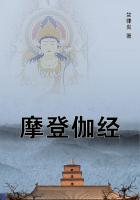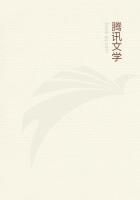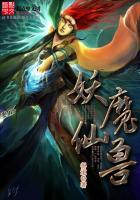In a secluded and mountainous part of Stiria there was in old time a valley of the most surprising and luxuriant fertility. It was surrounded on all sides by steep and rocky mountains rising into peaks which were always covered with snow and from which a number of torrents descended in constant cataracts. One of these fell westward over the face of a crag so high that when the sun had set to everything else, and all below was darkness, his beams still shone full upon this waterfall, so that it looked like a shower of gold. It was therefore called by the people of the neighborhood the Golden River. It was strange that none of these streams fell into the valley itself. They all descended on the other side of the mountains and wound away through broad plains and by populous cities. But the clouds were drawn so constantly to the snowy hills, and rested so softly in the circular hollow, that in time of drought and heat, when all the country round was burned up, there was still rain in the little valley; and its crops were so heavy, and its hay so high, and its apples so red, and its grapes so blue, and its wine so rich, and its honey so sweet, that it was a marvel to everyone who beheld it and was commonly called the Treasure Valley.
The whole of this little valley belonged to three brothers, called Schwartz, Hans, and Gluck. Schwartz and Hans, the two elder brothers, were very ugly men, with overhanging eyebrows and small, dull eyes which were always half shut, so that you couldn't see into THEM and always fancied they saw very far into YOU. They lived by farming the Treasure Valley, and very good farmers they were. They killed everything that did not pay for its eating. They shot the blackbirds because they pecked the fruit, and killed the hedgehogs lest they should suck the cows; they poisoned the crickets for eating the crumbs in the kitchen, and smothered the cicadas which used to sing all summer in the lime trees. They worked their servants without any wages till they would not work any more, and then quarreled with them and turned them out of doors without paying them. It wouuld have been very odd if with such a farm and such a system of farming they hadn't got very rich; and very rich they DIDget. They generally contrived to keep their corn by them till it was very dear, and then sell it for twice its value; they had heaps of gold lying about on their floors, yet it was never known that they had given so much as a penny or a crust in charity; they never went to Mass, grumbled perpetually at paying tithes, and were, in a word, of so cruel and grinding a temper as to receive from all those with whom they had any dealings the nickname of the "Black Brothers."The youngest brother, Gluck, was as completely opposed, in both appearance and character, to his seniors as could possibly be imagined or desired. He was not above twelve years old, fair, blue-eyed, and kind in temper to every living thing. He did not, of course, agree particularly well with his brothers, or, rather, they did not agree with HIM. He was usually appointed to the honorable office of turnspit, when there was anything to roast, which was not often, for, to do the brothers justice, they were hardly less sparing upon themselves than upon other people. At other times he used to clean the shoes, floors, and sometimes the plates, occasionally getting what was left on them, by way of encouragement, and a wholesome quantity of dry blows by way of education.
Things went on in this manner for a long time. At last came a very wet summer, and everything went wrong in the country round.
The hay had hardly been got in when the haystacks were floated bodily down to the sea by an inundation; the vines were cut to pieces with the hail; the corn was all killed by a black blight.
Only in the Treasure Valley, as usual, all was safe. As it had rain when there was rain nowhere else, so it had sun when there was sun nowhere else. Everybody came to buy corn at the farm and went away pouring maledictions on the Black Brothers. They asked what they liked and got it, except from the poor people, who could only beg, and several of whom were starved at their very door without the slightest regard or notice.
It was drawing towards winter, and very cold weather, when one day the two elder brothers had gone out, with their usual warning to little Gluck, who was left to mind the roast, that he was to let nobody in and give nothing out. Gluck sat down quite close to the fire, for it was raining very hard and the kitchen walls were by no means dry or comfortable-looking. He turned and turned, and the roast got nice and brown. "What a pity," thought Gluck, "my brothers never ask anybody to dinner. I'm sure, when they've got such a nice piece of mutton as this, and nobody else has got so much as a piece of dry bread, it would do their hearts good to have somebody to eat it with them."Just as he spoke there came a double knock at the house door, yet heavy and dull, as though the knocker had been tied up--more like a puff than a knock.
"It must be the wind," said Gluck; "nobody else would venture to knock double knocks at our door."No, it wasn't the wind; there it came again very hard, and, what was particularly astounding, the knocker seemed to be in a hurry and not to be in the least afraid of the consequences. Gluck went to the window, opened it, and put his head out to see who it was.














